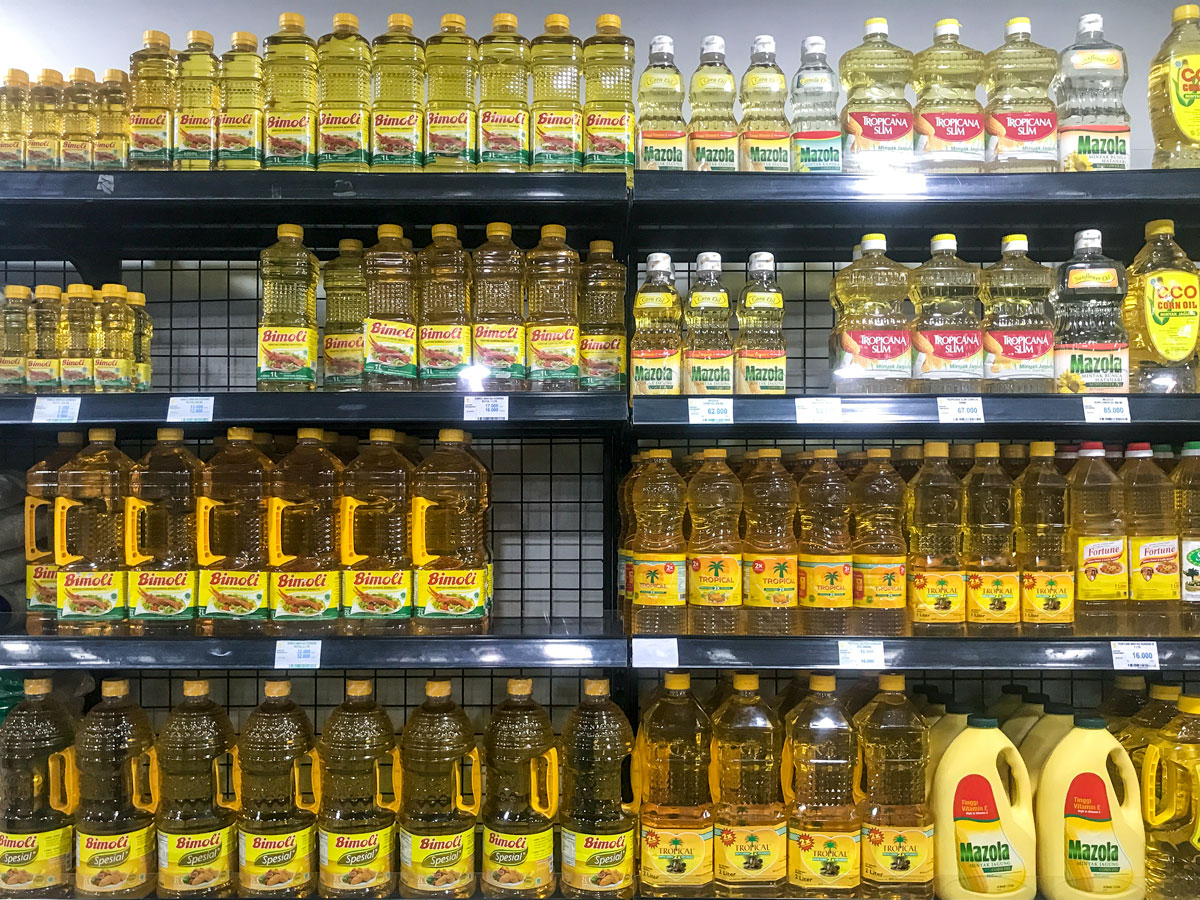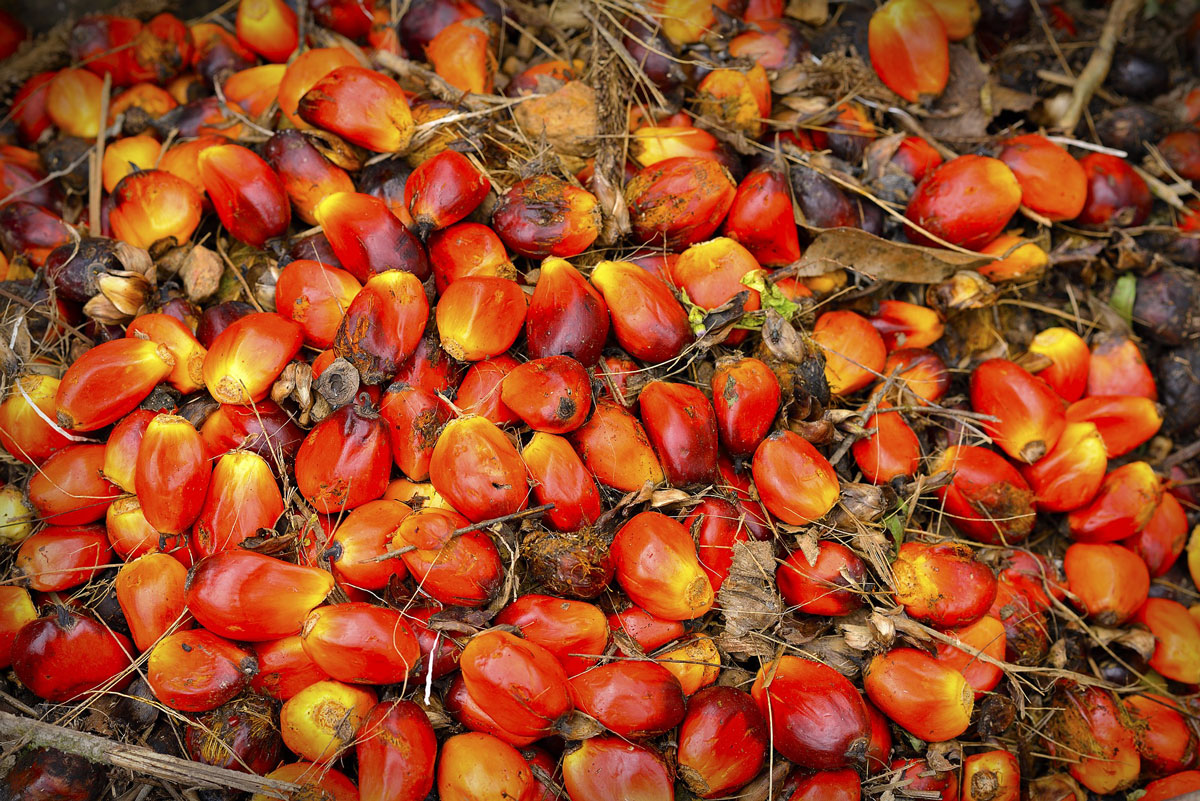A little history about palm oil in Indonesia
Palm oil has been a major player in the economic and culinary game in Indonesia for well over a century. Each decade has shown demand increase since the start of the commercial production of palm oil in 1911 in Sumatra. Now, Indonesia is responsible for making about half of the world supply.
Palm oil has become ingrained in Indonesian culture
The sneaky thing about palm oil is that it is in just about everything ranging from pharmaceuticals, cosmetics, and foodstuffs as well as a solid source for biofuel. Due to all of these great uses, it’s no wonder that it has become a major cash crop for Indonesia. It is also important to note that the palm plant gives significantly higher yields with lower costs than other vegetable oils which is yet another reason why it is preferred especially in Asian countries where it has become the standard for all of the food industries.
Deforestation for profits
As with anything that produces money, especially within poor countries, palm oil producers in Indonesia have made insane moves to increase profits. Indonesia has a diverse and important rainforest (ranking just below the Amazon and Congo basins) which has been subjected to rapid deforestation in order to make more room for palm production. Borneo and Sumatra are the two areas hit the hardest by palm oil demand. The process of destroying the forest or other natural carbon sinks such as peatlands in Borneo releases huge amounts of greenhouse gases. This has catapulted Indonesia into one of the top spots of greenhouse gas emitters.
Indonesia’s deforestation also has a huge impact on biodiversity. Due to natural habitat destruction, species like the Borneo pygmy elephant, Sumatran tigers, elephants, rhinoceroses, and orangutans have suffered immensely and are in danger of becoming extinct. In response to the negative impact (and image) that the palm oil industry has received, the Roundtable on Sustainable Palm Oil (RSPO) was created in 2004 in an effort to make changes. Although regulations regarding new palm production areas have been put in place, not everyone respects them and regardless of the new rules, a huge amount of damage has already been done.
Why sustainable palm oil is worth developing and promoting
Palm oil is hugely useful in a wide variety of industries so the idea of cutting it out doesn’t look realistic. In fact, since palm is such a high yielding plant, it actually makes more sustainable sense to use it instead of other options like sunflower or soy bean. The palm plant can also survive in unfavorable soil conditions so this makes it a very interesting contender for best vegetable oil option on the market.
HOWEVER. From the very beginning, the industry made it a habit to destroy essential natural resources in order to keep up with demand. The question is, why are the plantations being placed on these important lands when it is likely they would do fine in areas with poor soils?
The only way to shift what has happened is to only support sustainable products and to reduce the need of these types of oils in general.

How to reduce the need for vegetable oils
Although western diets are not dependent on palm oil, there is still demand for it because of the processed food industry. By cutting ties with packaged chips, cookies, ice cream, and even fast food options, you help reduce the need for unsustainable palm oil production. What does this mean for your diet? You will be eating raw, natural ingredients and, in turn, helping your body out by getting necessary vitamins without all the junk that accompanies processed foods.
You could go a step further and give up some other palm oil-rich luxuries such as shampoo (go poo-free!) and cosmetics. Make efforts to go more simple and natural in your foodstuffs as well as your personal hygiene products to reduce your palm oil consumption.
As for cooking oils, choose RSPO certified palm oil or other vegetable oil alternatives. Although the system isn’t perfect, you have power as a consumer to vote with each purchase you make.
Sustainability efforts found in Indonesia
As referenced previously, the Roundtable on Sustainable Palm Oil (RSPO) has made an effort to find a balance between production goals, employee necessities and the environmental impact. This is a voluntary certification and although it is considered by many as way too relaxed, it is at least a step in the right direction towards sustainability goals. Unfortunately, there isn’t a lot of availability of RSPO certified palm oil in many parts of Indonesia.
More recently, in 2011, Indonesia’s Sustainable Palm Oil System (ISPO) was created. This is a mandatory quality assurance program for all palm oil producers in Indonesia, but regulations vary based on the level of production for the facility. The rules are also not as strict as the RSPO so it is much easier for facilities to adhere to them.
Hopefully, with a bit of encouragement from the consumer market, more producers will be interested in taking these regulations to the next level.
Sarah Miller
PADI IDC Staff Instructor #320212
Azul Unlimited
We teach responsible scuba divers and ocean protectors. The brand is run by PADI IDC Staff Instructor Sarah Valdez who teaches scuba diving in person and on YouTube. Now she travels around the states and Mexico in her van scuba diving in new and different places. Follow her adventures on YouTube, Instagram, Facebook, and TikTok or join the Azul scuba community on Patreon.
Azul Unlimited is partnered with Azul Komodo, a top PADI IDC Center in Labuan Bajo, Indonesia offering daily dive trips to the Komodo National Park. Contact their team directly for an unforgettable experience diving in one of the top dive destinations in the world!









